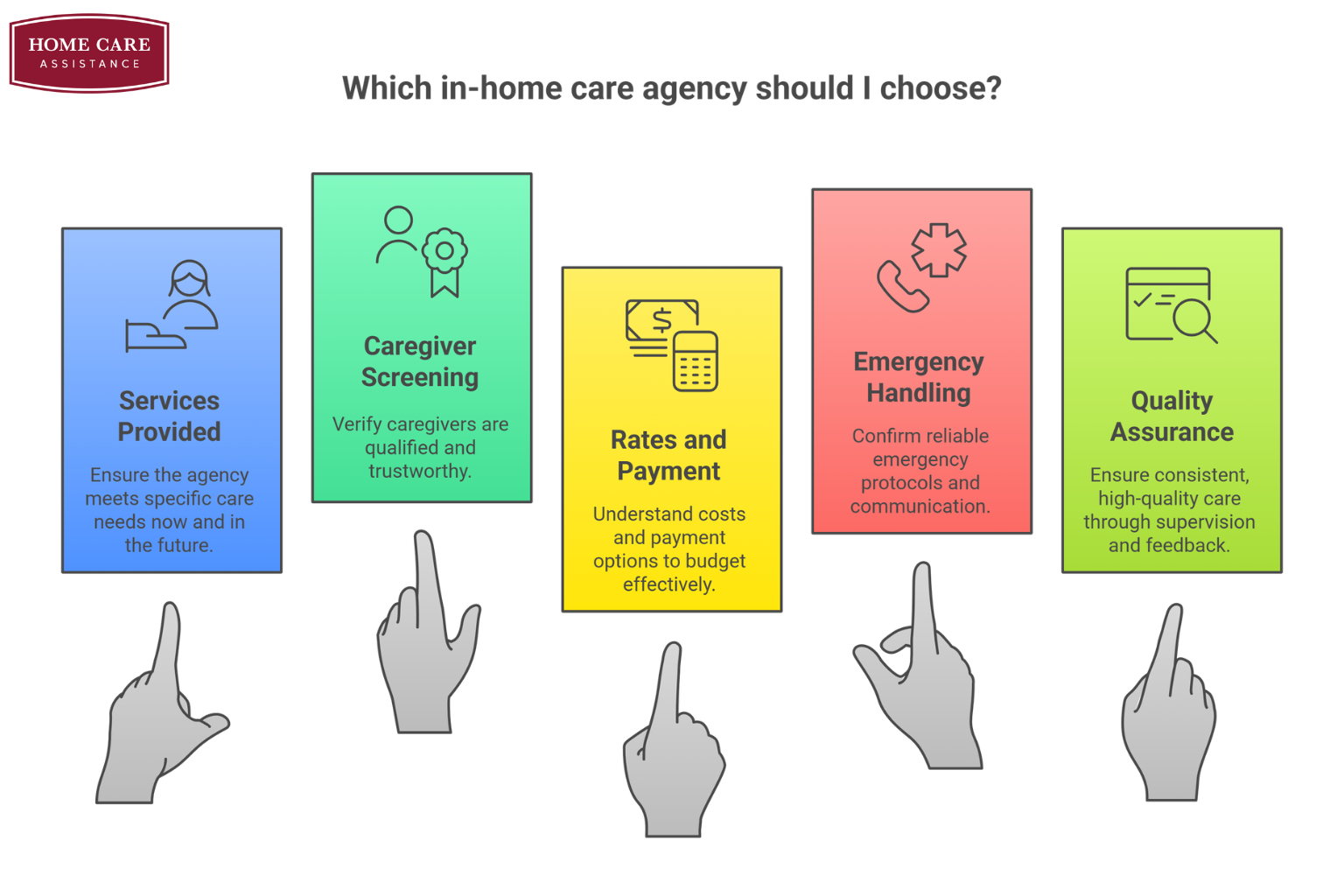
Table of Content
What Services Do You Provide?
Understanding the full scope of services available is essential before making any commitments. Different agencies offer varying levels of care, and you’ll want to ensure they can meet your specific needs both now and in the future. Key questions to ask include:- Do you provide personal care assistance (bathing, dressing, grooming)?
- Can you help with household tasks like cleaning, laundry, and meal preparation?
- Are transportation services available for appointments or errands?
- Can you accommodate specialized care needs (dementia, post-surgery recovery, chronic conditions)?

How Do You Screen and Train Your Caregivers?
The quality of care depends entirely on the caregivers who will be in your home. A reputable agency should have rigorous hiring and training processes to ensure they’re sending qualified, trustworthy professionals. Important areas to explore:- What background checks do you conduct (criminal, employment, references)?
- Are your caregivers licensed, bonded, and insured?
- What training programs do new hires complete before starting?
- How often do caregivers receive ongoing education or certification updates?
- Do you conduct regular performance evaluations?
- What’s your policy for replacing caregivers if there’s a poor fit?
What Are Your Rates and Payment Options?
Understanding the financial aspects up front helps you budget appropriately and avoid unexpected costs. Pricing structures can vary significantly among agencies, so it’s important to get clear details. Essential pricing questions include:- What are your hourly, daily, or monthly rates?
- Are there different rates for different levels of care?
- Do you charge extra for holidays, weekends, or overnight care?
- What payment methods do you accept?
- Do you work with insurance providers or Medicare/Medicaid?
- Are there any hidden fees or additional charges I should know about?
How Do You Handle Emergencies and Communication?
Effective communication and emergency protocols are crucial for maintaining safety and peace of mind. You need to know help is available when needed and that you’ll stay informed about your loved one’s care. Critical communication aspects to discuss:- Is someone available 24/7 for emergencies or urgent questions?
- How do caregivers communicate with family members about daily activities?
- What happens if a scheduled caregiver becomes ill or unavailable?
- Do you have backup caregivers readily available?
- What emergency procedures are in place for medical situations?
- Can family members access care reports or updates online?
What Quality Assurance Measures Do You Have?
Quality assurance demonstrates an agency’s commitment to maintaining high standards of care. These measures ensure consistent, reliable service and provide avenues for addressing any concerns. Look for agencies that offer:- Regular supervision visits to monitor care quality
- Client satisfaction surveys and feedback systems
- Clear procedures for complaint resolution
- Accreditation from recognized healthcare organizations
- Ongoing caregiver evaluations and performance monitoring
- Family involvement in care planning and review processes